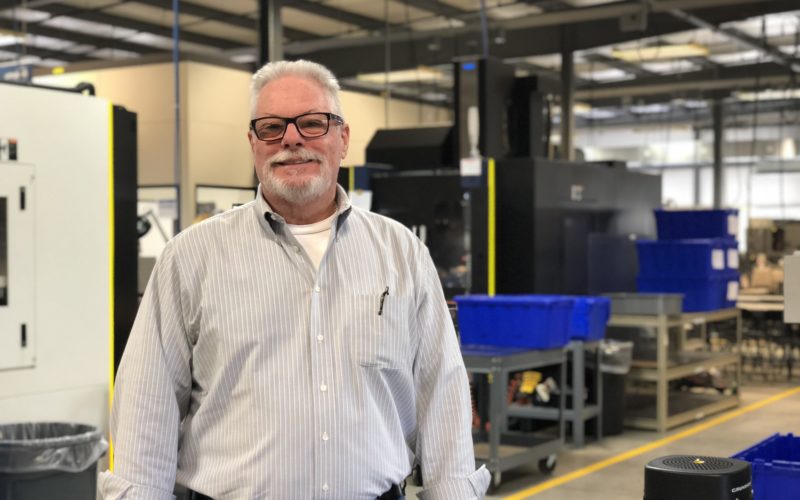There are two schools of thought when it comes to hiring. Some companies create positions, then look for people to fill them. Others look for talented people and craft positions to best utilize their abilities.
Littlestar has always looked for outstanding talent, whether in engineering or manufacturing, and then found a way to put that talent to use.
The recruiting process can take a long time. How long? In the case of Carey Priest, Littlestar’s newest applications engineer, it took two decades. He joined Littlestar in late 2017 after a nearly 40-year career that started with Amoco Chemical when the company was at the forefront of developing such polymers as Torlon and ended with Solvay Advanced Materials.
Littlestar owner ‘Phil Preston was a customer of mine and he was a big early believer in Torlon,” Priest said. “Phil was always quizzing me about it. He was always talking about different ways to use it. We developed a rapport and then he started dogging me about coming to work for him. That’s been going on for 20 years. I told him there may come a time where I’d be interested in that … and here I am.”
When Priest retired from Solvay, his wife knew that he wasn’t going to just sit at home in Oswego. With that much experience in advanced polymers, he was going to have plenty of options of where he wanted to apply that hard-earned knowledge. He didn’t spend much time weighing those options.
“This is the first place I came. I could have hooked up with a competitor of Solvay and made more money, but I came here and asked for Phil. What we do here interests me. We problem-solve. We have a couple of customers in particular where I’ve seen it firsthand. They came here with a concept that didn’t quite work. We worked with them. Did a trial. Worked at it some more. Did another trial. Worked at it some more. This thing is starting to go, and it’s because of our knowledge. We can say, ‘This is what you can do. No, that can’t be done.’ It’s very neat to have that kind of personal interface with the customer.”
To be fair, Littlestar had another advantage. Priest started his career working closely with Littlestar engineer Wray McKenzie at Amoco, and their careers have criss-crossed since then. In the early years of advanced polymers, the men essentially created a fabrication business for Amoco. To help increase the sales of Torlon, they helped companies figure out how to use it by taking in molds, fixing them, testing them and then teaching the customers how to run the parts.
“When you look at what Littlestar does now, it’s very similar to what Wray and I were doing for Amoco back in the 1980s. We were really focused on molding, and Littlestar is more advanced in machining. I can say this with certainty, nobody is better at machining than Littlestar. But we both did both.”
The fact that Priest essentially could “put the band back together” was another draw.
“Wray and I have achieved more than we thought possible because we were in the right place at the right time and were able to get involved in these exotic polymers like Torlon and PEEK and everything that’s come out since. We were able to work with a lot of industries, such as aerospace, automotive and off-highway equipment. We were involved with a lot of the advances that started out in fighter jets, then moved into Formula and Indy racing cars. Then when we figured out how to make them cost-efficient, they ended up in your car.”
Priest spent most of his first months at Littlestar in the shop, familiarizing himself with each of the company’s projects and customers. This year, he’ll be back in the field, using his experience and connections to introduce Littlestar to more companies.
“Phil wants to grow, and I can help him, but what’s unique here is that a customer or potential customer can come right in and sit down and talk to Phil, who is a mechanical engineer. We’ll never lose that personal touch, it’s part of what sets Littlestar apart. I’m excited to tell the world what we do here.”

